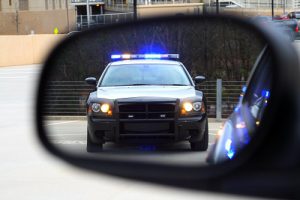 When it comes to DUIs, police officers are required to adhere to strict standards before pulling someone over. Without reasonable suspicion that a crime is taking — or has taken — place, officers are not lawfully permitted to detain or question motorists—even if only for a short period of time. Of course, DUI checkpoints continue to be the controversial exception to this rule. Checkpoints aside, every DUI arrest begins with an officer’s suspicion that a motorist is breaking the law. There are times when officers are incorrect about their suspicions and charges are dropped, but it all begins with lawful reasonable suspicion.
When it comes to DUIs, police officers are required to adhere to strict standards before pulling someone over. Without reasonable suspicion that a crime is taking — or has taken — place, officers are not lawfully permitted to detain or question motorists—even if only for a short period of time. Of course, DUI checkpoints continue to be the controversial exception to this rule. Checkpoints aside, every DUI arrest begins with an officer’s suspicion that a motorist is breaking the law. There are times when officers are incorrect about their suspicions and charges are dropped, but it all begins with lawful reasonable suspicion.
What Does Reasonable Suspicion Look Like?
Reasonable suspicion is just that—an inclination that something isn’t right. It falls somewhere between a hunch and an educated guess, but there are many outward signs a motorist may display that could tip an officer off and incite reasonable suspicion. The following are a few behaviors and examples an officer may consider reasonable suspicion:
- Driving outside the lane
- Riding left-of-center
- Straddling the center line
- Illegal turns
- Turning from a straight lane
- Turning on red when a sign explicitly says it’s not permitted
- Making a U-turn where they’re not allowed
- Turning left on red into oncoming traffic
- Collisions
- Hitting—or nearly hitting—objects (cars, signs) along the side of the road
- Unusual Driving
- Erratic speeds
- Extremely slow or fast speeds
- Frequent braking
- Stopping in the middle of the road for no apparent reason
Bear in mind that this list is far from exhaustive. Reasonable suspicion often resides with an officer’s judgement. If he or she witnesses any type of behavior or activity he or she deems to be associated with impaired driving (within the confines of the law), it may be defined as reasonable suspicion. In some cases, an officer may act on reasonable suspicion and peruse a DUI arrest even if the officer didn’t initially pull a motorist over with suspicion of driving under the influence. For example, an officer may arrive at the suspicion that a driver has been drinking after speaking with him or her about a burnt-out tail light or being called to the scene of an accident after the event occurred.
An experienced DUI lawyer will investigate if the officer did, in fact, have reasonable suspicion to pull the driver over. If the officer did not have reasonable suspicion—and the attorney is able to prove such circumstance in court—that DUI case could be dismissed.
How Do Probable Cause and Reasonable Suspicion Differ?
Perhaps the most-known phrase in the world of DUIs is “probable cause”. Probable cause and reasonable suspicion support the same general idea, but they play different roles in the realm of a DUI arrest.
Reasonable suspicion gives an officer permission to stop a driver for a temporary period of time and detain that person if the officer suspects the motorist is participating in criminal activity (such as driving drunk). The purpose of reasonable suspicion is to give officers a chance to investigate their suspicions further before arresting the driver.
Probable cause is a higher standard of suspicion, which must be supported by actual evidence, which then substantiates an officer’s decision to make an arrest. Without proper probable cause, a DUI arrest may be deemed unlawful and be subsequently dismissed upon review of the facts. Experienced DUI attorneys are skilled at examining probable cause elements, as any missteps can lead to an overturned arrest record. As it relates to DUIs, officers might use the following to prove probable cause:
- Field sobriety tests
- Breath tests
- Blood tests
Although probable cause and reasonable suspicion are quite similar, especially to people not trained in law enforcement (as officers or attorneys), there is an important distinction. Reasonable suspicion simply implies the driver might have committed a crime. Probable cause—and the necessary evidence associated with it—indicate the driver most likely committed a crime.
If you’ve been arrested for a DUI, don’t take the charges lying down. There are many reasons DUIs are thrown out every day, and an experienced DUI attorney will know exactly what to look for when it comes to your specific case. Contact Los Angeles DUI lawyer Jon Bryant Artz for a free initial consultation!


